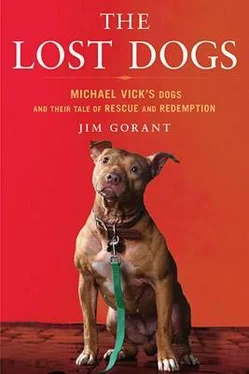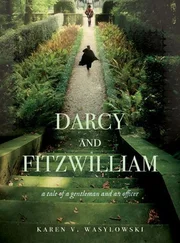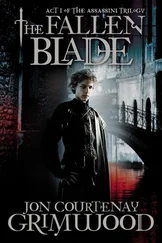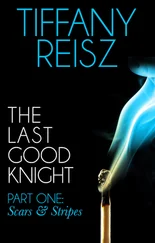In many ways the dogs were easier to handle than regular kennel dogs. There was something about them that was more forgiving, more willing. It was these qualities and their unending resilience that touched the WARL staff so deeply. The Vick dogs reminded them in a more extreme way of everything people love about dogs to begin with.
The dogs’ growth was easy to see, but Henry thought that maybe the people had changed more than the dogs. Though she and her colleagues had started out with one set of expectations, they came to see a far different reality. Maybe calling the dogs unicorns had actually been more profound than they originally thought. Maybe there really was an element of magic to them.
She unwrapped the McMuffins and put one in each kennel, then stood back and watched the dogs approach their Christmas treat. She couldn’t believe what she saw. A few chomped right into it, but most carefully sniffed and nosed at the food. The dogs pushed the sandwiches around until they came apart. Many ate the sausage. Some ate only the muffin. Nearly all picked at it. Eight weeks earlier every dog on the line would have devoured that sandwich in two bites.
Henry reassessed. Okay, the dogs had changed too. They weren’t unicorns after all, just dogs who had become a little pampered and picky, and that was pleasant enough to consider. A week later, they were gone.
CRIS COHEN COULD NOT stop laughing. Part of it was nervous laughter and part of it was sheer relief. It was the sort of giddiness that came after weeks of uncertainty and anticipation finally ended, and all the build-up-the wondering and planning-receded into a concrete new reality.
Cohen was a BAD RAP volunteer and he had agreed to foster one of the Vick dogs. Wanting to be helpful, he said that he’d take any of them, and as a result he’d ended up being assigned a male who needed some work. This alone did not bother Cohen. He’d been down this road before. Almost six years earlier his then girlfriend, now fiancée, Jen, had discovered BAD RAP and brought home a rescued pit bull, a brindle female they named Lilly. Cohen didn’t like the idea at first, but shortly after the dog came home Jen went away on a business trip. Cris and Lilly bonded.
After that the couple began fostering other pit bulls. There was Arlo, a total shut-down case that Cris managed to bring around; Lenny, a sweet dog that Cris and Jen almost kept; and Melvin, a big surly dude who Cohen didn’t like much at first but eventually came to understand. There had been six or seven in all, so as Cohen prepared for this latest guest he knew the drill.
He knew what sort of supplies he needed, how much time he’d have to devote to the effort, and how to work with the dog. But there were just enough differences about the situation to keep him from feeling that he knew exactly what to expect. For starters, this dog was from a fight bust, and of all the dogs Cohen had worked with, none had that specific background. No doubt some of them had fought, but they had not been raised as part of a large, well-funded fighting operation. Although he didn’t like to admit it, even to himself, the dog’s potentially violent history made him nervous. Of all things, he’d been having visions of the Undertaker, the ghoulish professional wrestler who wears all black and fosters a persona of evil incarnate.
The other attention-getting detail was the dog’s name: Jonny Rotten. A pit bull from a fight ring is one thing. A pit bull from a fight ring named after a notoriously abrasive and out-of-control punk rocker suggested something else altogether.
Those facts had swirled through Cohen’s mind in the weeks since he’d been informed of his assignment, and they only grew more prominent as he prepared to meet the dog. Still, he grabbed the leash and collar, a handful of treats and a chew toy, climbed into his silver Toyota pickup truck, and made the half-hour drive from the Sunset Hill neighborhood of San Francisco out to Donna and Tim’s house in Oakland.
Inside he greeted everyone. After a few minutes of friendly banter, he was led through a maze of pens. Finally Tim Racer stopped before one and opened the door. Out came a dog, Jonny Rotten. He was about thirty-five pounds and his black-and-white fur twisted around his body in a way that left his right eye encircled in a big ring of black. The other eye was surrounded by white and its natural tearing left a little pink comma on the fur below. Under his nose another little black patch looked like a greasepaint mustache, and when the sun was behind him, the light shone through his pink ears.
There was no other way to say it: Jonny Rotten was small and cute. He looked like a scrappy street kid in a cow suit. As Cohen assessed the little fella he couldn’t help but laugh. He laughed at the name, he laughed at the dog, he laughed at himself. He laughed right through Racer’s speech about his responsibilities. He laughed while he signed the release papers, and he laughed as he loaded the pen into the truck. He even laughed when, halfway over the Bay Bridge, the little dog puked all over the truck.

Dogs love the rut. They love getting into a routine that doesn’t change. Once they know they’re going to get fed and walked and have playtime daily, they can relax. They can focus on other things. Jonny needed a rut.
He’d come a long way since leaving the shelter but he was still stressed and wired. When Cohen came out to greet him after his first night in the house, Jonny’s eyes were the size of silver dollars, taking in everything. Jonny wiggled and paced in his crate and Cohen could tell that as fast as he was moving on the outside, he was going twice as quickly inside.
In the last nine months he’d gone from Vick’s woods to the shelter, to the RV, to Donna and Tim’s, and now here to Cohen’s house. He was set up in a crate in the dining room, which was gated off from the rest of the house. As Jonny sat in his spot he could first smell and then see Lilly roaming around. There was another pit bull in the house; what did that mean? Who were these people? What would they want of him; what would they give him?
The first thing Cris hoped to give Jonny was a rut, and then they’d go from there. Growing up in Southern California, Cohen had always had dogs and he’d spent his summers at a camp where animals were part of the curriculum: They rode horses, they caught snakes. He’d made it his business to understand animals and both he and Jen were such animal lovers that they decorated their home with a taxidermist’s tributes. The walls and shelves of their two-story rental were dotted with a horse skull, a rabbit, a possum, a raven, a snake, and an armadillo. There were rooster carvings and mini-alligator heads, too.
Cohen’s plan for Jonny was simple. Up every day between 6:30 and 7:00 A.M., and out for a forty-five-minute walk to take care of any lingering overnight business and burn off some energy. The path would be the same every morning. Rut, rut, rut. After that it would be back home for a handful of food, some grooming, a quick scratch down, and then into the crate with a few toys and puzzles.
Cohen ran the service department at a nearby car dealership. At lunchtime he’d zip home and Jonny would get a quick trip to the yard, some playtime, and a little lounge in the sun followed by a return to the crate until Cohen got home at 5:30 P.M. Then there would be another long walk-an hour this time-dinner, a game of fetch in the yard, quiet time, and sleep.
At least that was the plan. Cohen realized quickly that this routine would have to be something of a long-term goal. He clipped a leash on Jonny and started leading him across the floor, but when they reached the stairs they needed to go down in order to get out, Jonny came to a stop.
Читать дальше













